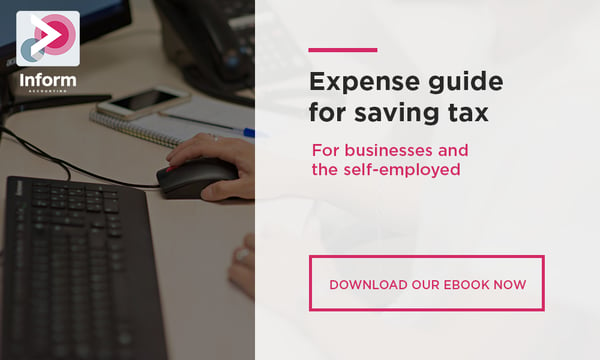BLOG
Directors' Loan Accounts

A 'Directors Loan Account' (DLA) is an account in the company’s financial books that records all transactions between a director who is a participator (or another participator) and the company.
Transactions through the account include:
- a loan to the company from the director; or visa versa
- monies drawn by the director on account of salary, dividend or expenses
- director's private bills paid for by the company
- company bills paid personally by the director
- shares issued on company incorporation but not paid for
Salary paid directly to a director under a contract is not recorded in the DLA as the monies will have been paid and therefore not owed by the company.
DLA in credit
When a company incorporates it is not unusual for directors to lend money to the business and this will show in the DLA as a 'loan' from the director to the company. As the DLA will be in credit, the director can draw on the credit balance at any time with no tax or National Insurance implications for either him/herself or the company. However, if the company pays interest on the loan, the director will be liable for tax on that interest, declaration being on the personal tax return. The company also needs to declare the payment to HMRC.
A DLA may also have a credit balance should salary or dividends be allocated to a director, but they do not draw payment. Non take-up may be for various reasons e.g. the company may be experiencing cash flow problems or the director may receive other income that might take him into higher rate tax and he does not want that to happen.
DLA in debit/overdrawn
Company
Invariably the DLA will be overdrawn throughout the accounting year as directors withdraw payments on account of dividends and expenses from the company bank account - each payment being recorded in the DLA. The directors may be liable to pay a benefits-in-kind tax charge if the outstanding balance on the director’s loan account is more than £10,000 at any point in the tax year. The company will be liable to Class 1A employers NIC.
At the end of the year, it is not unusual to find that insufficient profits have been generated to cover the amount that has been withdrawn, even after taking the salary and dividends into account, the net result being that the director will owe money to the company as the account will be overdrawn.
This overdraft must be repaid if there are to be no tax implications for both the director and the company. Should the loan exceed £15,000 and be made to a full-time working director whose interest in the company is more than 5% of the share capital then the loan needs to be repaid by the due date of payment of corporation tax (i.e. within nine months and one day of the accounting period). If this does not happen then the company is liable to a tax charge at 32.5% (a 'section 455' charge) on the outstanding loan at that date. If the loan is subsequently repaid after the charge has been paid then the tax is refunded (although not until nine months and one day after the end of the company's accounting period in which the loan is repaid or reduced).
Director
Should the total of all outstanding loans from the company exceed £10,000 at any time during a tax year then the director is considered to have received a 'benefit in kind' from his employment. The charge is on the difference between the interest paid (if any) and interest payable at the 'official rate'. The company will pay employers NIC on the charge and be required to declare the 'benefit' on the annual P11D form.
HMRC is taking an increasingly dim view of such loans not least because remuneration or dividends are taxable as income when a loan is not. They will commonly ask for a detailed analysis of the DLA looking for such discrepancies as failure to notify liability to a section 455 charge. 'Bed and breakfasting’ transactions (where the DLA loan is correctly repaid within the nine months stated but then the money is redrawn shortly after repayment through another separate loan) are also an area of interest as is failure by the company to apply PAYE at the correct time to bonuses credited to the DLA.
Get in touch
Get in touch with us today to find out how we can help keep you compliant, and benefit from our expert advice. Give our Business Development Manager a call on (0121) 295 8884, or email charlie.sangha@informaccounting.co.uk.




.jpg?width=1500&height=1000&name=amy-hirschi-K0c8ko3e6AA-unsplash-(5).jpg)

